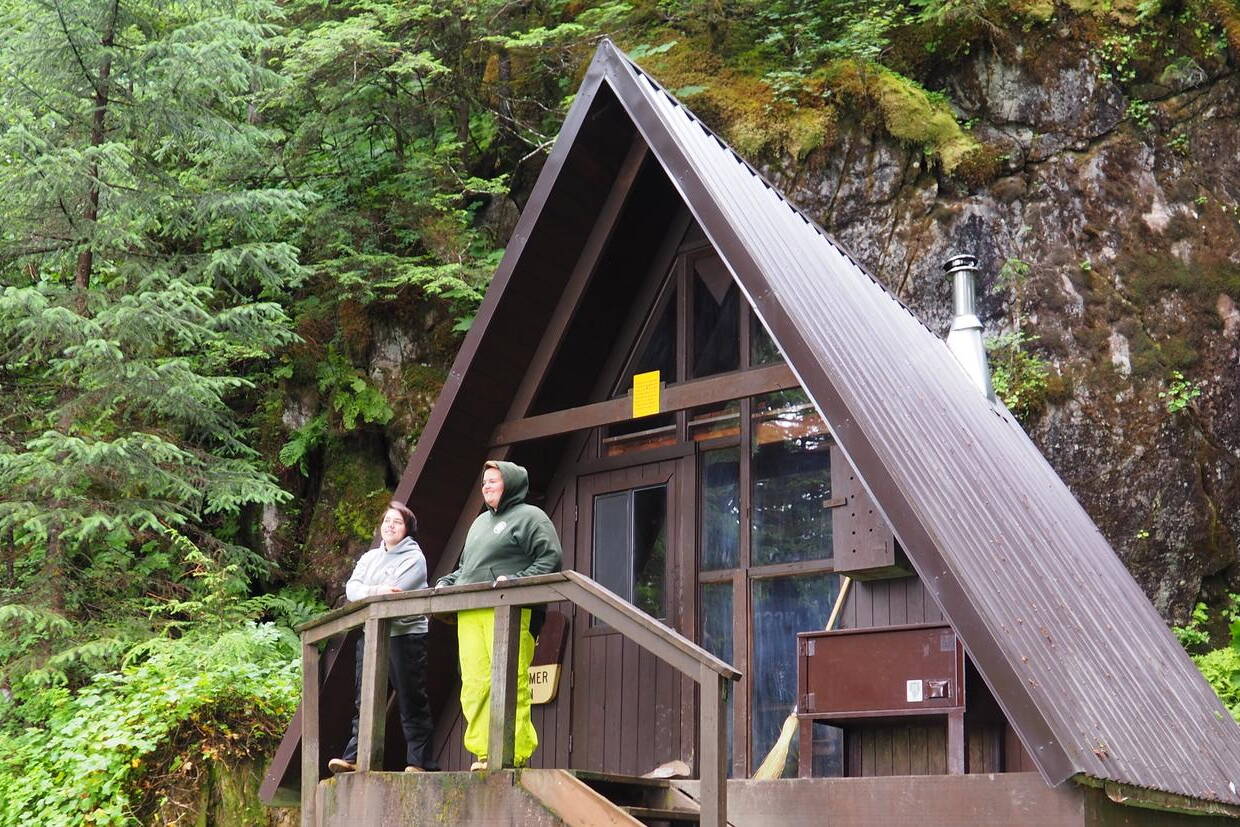Roughly a dozen new U.S. Forest Service cabins in Southeast Alaska and improvements to a handful of existing ones are among the goals for about $14.4 million in federal funds for such projects in the Tongass and Chugach National Forests, with public input on specific locations scheduled to begin next month.
The funding is part of the $1 trillion federal infrastructure bill approved last year, which includes about $37.75 million to improve recreation related infrastructure on national forests and grasslands, according to Forest Service officials.
About 50 new cabin sites are being proposed by forest districts in the state after comnsulting with local entities and there is enough funding for roughly half of those, said James King, regional director of recreation, land, and minerals for the Forest Service Alaska Region, in an interview Tuesday. He said he envisions roughly 10 to 12 cabins each in the Tongass and Chugach regions, with a smaller number of upgrades to existing cabins in both areas.
The specific locations are still being implemented into an interactive online map that will be released when the Forest Service begins its official public input process, King said.
“Some of those really made great sense and maybe some of these aren’t in great locations,” he said.
While not providing any specifics about new cabins in the vicinity of Juneau, other than saying there will be a few, King said a mix of easy access and more remote sites is likely to be approved in both forest regions. That’s partially due to cost and partially to making cabins available to all interested members of the public with varying degrees of mobility.
“If we look at building one that’s five miles up a trail — and requires shipping material to Juneau, and helicoptering materials and building in a remote site where people have to stay — it can be really expensive,” he said. “On other hand, we’re looking at campgrounds where expenses will be less.”
King said he hopes the Forest Service will have an approved list of projects for the funding by November and begin construction next summer at sites that already have gone through the environmental review process. The agency has five years to spend the funds.
The lesser emphasis on repairs to existing cabins is due to fees covering many mainteance costs and the one-time nature of the infrastructure bill funding, King said.
“This is a unique opportunty to build that we’ve gotten,” he said.
There will also be an emphasis on using local materials and labor when possible, especialy since even if materials are avaiable cheaper from large Outside suppliers the cost and difficulty of getting them here may not be an advantage, King said. He said there also has been interest by public and private entities — that he declined to name — in partnering onm some cabin projects that may allow the Forest Service to further leverage the infrastructure funds.
“If it’s close (in cost) we’d like to supoort local economies and local businesses,” he said.
• Contact Mark Sabbatini at mark.sabbatini@juneauempire.com

